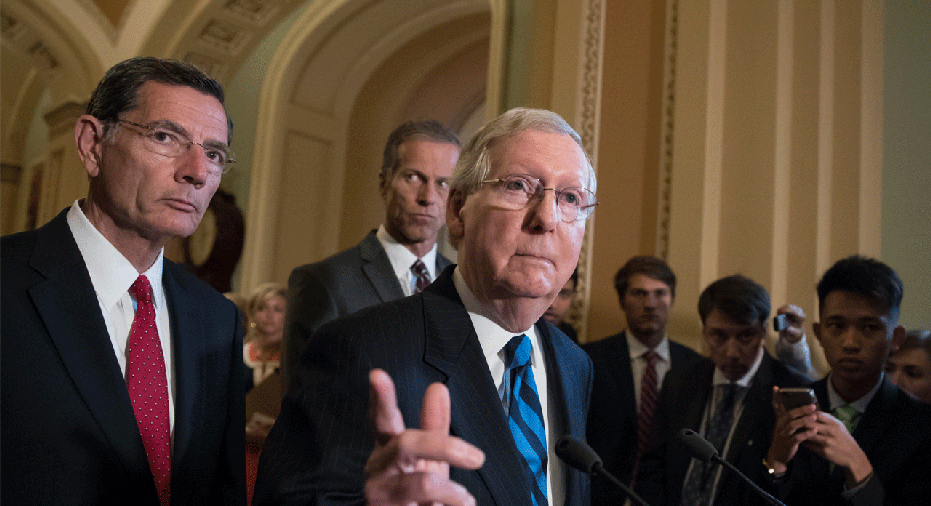Senate Republicans consider a trillion-dollar-plus tax cut for budget

Senate Republicans are considering writing a budget that would allow for up to $1.5 trillion in tax cuts over the next decade, said two people familiar with the discussions.
Budget talks are continuing and no final decision has been reached yet.
A budget that creates fiscal room for a $1.5 trillion tax cut, if adopted, would then be followed by a tax bill that would specify rate cuts and other policy changes that don't exceed that figure. Calling for a tax cut in the budget would let Republicans lower tax rates while making fewer tough decisions on what tax breaks to eliminate to help pay for the cuts.
Such a plan would assume that tax cuts would boost economic growth and generate revenue to help pay for themselves, but it would also likely mean that Republicans would need to make some of the tax cuts expire after 10 years, leaving decisions to a future Congress they may not control.
Republicans had talked earlier this year about tax proposals that would fully pay for themselves but they have been gradually shifting toward a tax plan that doesn't explicitly pay for itself in the first decade. Budget Committee member Mike Crapo (R., Idaho) said on Monday that the tax cut should be "as big as we can get."
The budget is an essential first step to the major tax bill Republicans want to pass this year. If the House and Senate agree on a budget, they can fast-track a tax bill through the Senate on a simple-majority vote through a process known as reconciliation, rather than seek a bigger 60-vote majority that would require support from Democrats.
The budget sets the maximum size of any tax cut over the next 10 years, making it a crucial fiscal marker in this fall's tax debate. A budget with a tax plan that is revenue-neutral would effectively pay for itself, meaning any reduction in tax rates would be offset by reducing breaks or other revenue-raising measures. A budget with $1.5 trillion in tax cuts wouldn't be revenue-neutral.
Republicans face internal tension in trying to bridge the gap between those warning about large federal debt levels and the desire of many to cut taxes. The Senate Budget Committee, led by Mike Enzi (R., Wyo.) hasn't yet scheduled a committee vote or released a draft budget.
Sen. Pat Toomey (R., Pa.), a Budget Committee member, said in an interview Monday that he has been advocating a $2 trillion tax cut. Mr. Toomey's preference is partly based on arguments that the tax bill, which is still being written, would generate significant economic growth that would yield additional tax revenue on its own and make the actual hit to the budget from tax cuts smaller.
Write to Richard Rubin at richard.rubin@wsj.com and Siobhan Hughes at siobhan.hughes@wsj.com



















